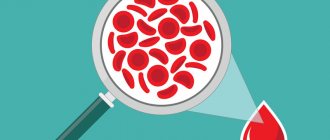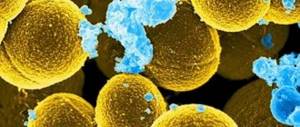Pregnancy, children > Need to know > How to take Aspirin to prevent various diseases?
Most people know about the drug with the difficult-to-pronounce name “acetylsalicylic acid”. There are the most controversial myths about him, more than one scientific dissertation has been written, and even jokes have been made. This is truly a folk drug, the mention of which many immediately associate with colds.
Aspirin as a pharmacological drug is based on the previously known acetylsalicylic acid - a substance that has truly magical properties such as:
- antipyretics;
- anti-inflammatory;
- painkiller;
- thrombus-dissolving (or blood-thinning);
- antitoxic.
Thanks to such a rich complex of effects, it is difficult to overestimate aspirin, but nevertheless, one should not forget the fact that, first of all, according to its pharmacochemical group, aspirin belongs to acids, and any acid is a potential catalyst for all bioenzymatic processes in the body, and, therefore, its influence will not always be only positive.
It is important to take into account the side effects and correctly correlate all the pros and cons of taking this drug in each individual case.
Many people think little about this and limit themselves to general principles, framed in the simple phrase “it helps me and that’s enough.” There are also fanatical consumers of this drug, who consider it almost the only true panacea for most diseases. Which of them is right and whether there is sound truth in such “worship” - we will try to figure it out in our further article.
Preventive use of aspirin
Taking aspirin
Many people have heard more than once that acetylsalicylic acid can be taken not only for therapeutic purposes, but also for preventive purposes. This is constantly being repeated on TV screens in various programs that promote a healthy lifestyle, from the press and printed publications; this topic is also actively discussed by pensioners who have excellent experience in the field of word of mouth.
Recently, the topic of aspirin has been raised from everyday points of view. More and more often you can hear about its effectiveness as a product that can remove stains of any quality, from blood and wine stains to complex ink stains from felt-tip pens that small children leave on the surfaces of their own clothes and furniture.
Many summer residents add aspirin to fertilizers intended for plants, and this protects the latter from diseases and pests, as well as saturating the soil with additional minerals. It is no coincidence that flowers standing in water with a pre-dissolved acetylsalicylic acid tablet will last much longer than their counterparts in plain water.
The power of aspirin is obvious! And a person tries to make the most of it for his needs. What diseases can be reduced and prevented by taking small doses of aspirin?
Use of aspirin
Depending on the characteristics of each individual patient’s body, the doctor will suggest an individual dose of aspirin. But you should not prescribe and take pills on your own; you may need to prescribe another drug that does not cause consequences for the patient.
Aspirin is taken for primary and secondary prevention after a doctor has assessed the person’s health status. This will reduce the risk of bleeding in the brain or other parts of the body.
For diseases of the cardiovascular system, diabetes, and high blood pressure, it is important to start using aspirin. The risk zone includes those with atrial fibrillation, left ventricular hypertrophy, as well as heavy smokers.
This mainly applies to men and women aged 45-60 years. At an older age, the doctor will weigh all the benefits and only then tell you how to take aspirin or replace it with other drugs. At 70-80 years of age, the risk of bleeding is increased and it is not worth prescribing independent use of aspirin tablets.
Prevention of cardiovascular diseases
Many have heard from grandmothers and great-grandmothers that if you take a quarter of an aspirin tablet a day, this will reliably protect you from heart attack and stroke for many years. And this belief has been proven more than once by medical and biological sciences. The fact is that salicylic acid, which is the main component of the drug, is an excellent blood-thinning and thrombus-dissolving agent.
- Entering the blood, aspirin binds to hemoglobin molecules and prevents the decrease in the activity of red blood cells, thereby preventing them from settling on the walls of blood vessels. A large accumulation of red blood cells, in turn, triggers a complex protective reaction of the body, which immediately includes platelets and gradually fuse with each other, through thrombus-forming fat dense masses called thrombi;
- The second positive point is the ability of aspirin to break down cholesterol growths that form on the walls of blood vessels and are called “cholesterol plaques.” Like any acid, the drug has a dissolving property and thereby promotes the recycling of released cholesterol by organs and tissues. Subsequently, it can be used by other organs and tissues or successfully eliminated from the body through feces.
Read: Diazolin: why and how to take the drug correctly
Freed from blood clots, chemically active blood moves freely through vessels cleared of cholesterol plaques, delivering the right amount of nutrients and oxygen, which undoubtedly improves a person’s well-being. Strokes and heart attacks, which more often occur as a result of rupture of vascular walls, are practically excluded.
But nevertheless, it is incorrect to consider aspirin a complete prevention of coronary heart disease, since there are a number of other factors that lead to a sharp spasm of blood vessels, which results in their massive rupture.
This means that in addition to taking aspirin, it is important to engage in the prevention of a healthy lifestyle: eliminate stressful situations, take care of proper nutrition, toughen up, get enough sleep, strengthen the immune system in every possible way and promptly treat colds.
Contraindications
Aspirin in the prevention of cardiac disorders is not indicated for all patients, even in the presence of causative factors . The bottom line is that acetylsalicylic acid tablets have the most negative effect on the mucous membrane of the gastric walls.
As a result of systematic use of the medicine, the likelihood of the formation or enlargement of ulcers increases. This applies to the category of people who already suffer from this disease. The most dangerous consequence of a peptic ulcer is the opening of bleeding. At the same time, Aspirin precisely promotes this process, since when it is taken, blood clotting is significantly reduced. The same can be said about the formation of blood clots.
It is quite possible to solve this problem if you use Aspirin tablets or capsules, which dissolve in the intestines. These dosage forms of drugs allow treatment to be carried out by bypassing vulnerable areas of the gastrointestinal tract. In addition, while taking Aspirin for the purpose of prevention, allergization of the body may develop, heartburn may appear, and pain in the abdominal area may occur.
People with a low risk of heart attack and stroke are not recommended to take Aspirin for prevention due to the development of the serious side effects described above. But if there is a high probability of a cardiovascular accident, attending physicians still prescribe aspirin.
Prevention of cancer
Over the course of a long time, more than one type of research has proven that any oncological disease is primarily a pathology that occurs at the level of deep cellular damage, and only then the changes associated with this fact and a number of consequences (extensive inflammation, decay, destruction of entire organs and etc.). It seemed that what could a simple aspirin do here, which besides lowering the temperature is not useful for anything else?
Prevention of coronary heart disease
Those who think so are mistaken. Acetylsalicylic acid is a substance with versatile effects. Including at the cellular level. What happens to any cell in the body when it is involved in extensive inflammatory processes? First of all, the destruction of its outer protective shell begins, as a result of which arachidonic acid is released outward. In this way, the cell signals its breakdown or death. If for some reason the immune system does not respond to this signal and is in no hurry to repair or remove the dead cell, it begins to gradually die and disintegrate.
Decay products penetrate into neighboring cells and begin to adversely affect them, changing their energy metabolism, disrupting the processes of energy metabolism and division mechanisms. The latter turns out to be fatal, as it ceases to be controllable. As a result, cells crippled by toxins begin to multiply at an extraordinary speed, and all their internal functions are seriously impaired. In fact, inside the human body a completely alien, evil parasitic organism gradually grows, which gradually takes away the life of its healthy owner. His name is cancer.
What help is there from acetylsalicylic acid? The fact is that arachidonic acid, which is released from the cell as a signaling mechanism, is an enzyme - a protective intracellular building material, essentially its “blood”. Losing fluid, the cell gradually first gets sick and then dies.
Acetylsalicylic acid promptly prevents the strong release of arachidonic acid, thereby maintaining its level inside the cell and thereby helping the cell to initiate self-healing (increasing ribosome activity in response to a decrease in intracellular fluid pressure). Studies prove that the systematic use of aspirin by cancer patients “freezes” the state of the cancer tumor for some time, but does not treat it, since its presence already indicates that the pathological moment has begun, and aspirin is not able to restore severely damaged cells.
Aspirin for blood thinning during pregnancy
In the first and third trimester of pregnancy, taking Aspirin is strictly prohibited for pregnant women. You cannot interfere with natural processes that are provided by nature at the initial stage of fetal development. In the third trimester, the risk of premature birth and bleeding increases. This is why doctors do not prescribe Aspirin to their pregnant patients, either to relieve headaches, or to treat colds, or to thin the blood.
The medicine has a rather complex composition, which can have a negative impact on the health of the unborn child. In addition, the medication has a number of side effects, such as an allergic reaction, nausea, diarrhea, anorexia, etc. The presence of many side effects does not allow doctors to recommend Aspirin during pregnancy.
Other preventive options
Recently, people have started talking about acetylsalicylic acid as a means of excellent cosmetic effects. However, its use is not suitable for everyone, but only for people suffering from increased secretions of the skin glands - in other words, those with oily skin.
Read: Cough syrup for children over one year of age: which one is better to choose
Like any acid, aspirin has a drying effect. By adding 2 crushed tablets to homemade shampoo or any factory-made shampoo labeled “for all hair types” or “for normal hair,” you can achieve an excellent positive effect over time.
The hair will acquire an excellent healthy shine, will be better saturated with the nutrients of the shampoo, will stop splitting at the ends, falling out and breaking off at different lengths of its structure.
However, you should not do this with shampoos intended for dry and oily hair. In the first case, there may be special substances in the hair washing liquid, the action of which is aimed at moisturizing the hair and acetylsalicylic acid, having successfully suppressed them, will cause an even more harmful effect.
In the second case, on the contrary, additional drying complexes are included in the shampoo and in combination with acetylsalicylic acid, you can thin the hair structure, and in the worst case scenario, damage the bulbous structure and cause chemical burning of the hair.
Complications from long-term use of aspirin
However, it should be remembered that aspirin is primarily chemically synthesized salicylic acid. A substance, the creation of which was based on a compound once obtained from willow bark or their raspberry bushes, the use of which can cause various adverse reactions. In essence, these reactions are the same distress signals that tell a person that the drug should be limited or stopped.
It is important to stop taking it if:
- An allergic reaction to salicylic acid appeared (acetylsalicylic acid is its complete artificially produced analogue). As a rule, it is indicated by a specifically localized rash that is afraid of open skin areas. As a rule, it appears on areas of the limbs and on the body that are protected from light, in the form of scattered small rashes that do not have a specific localization. In rare cases, mainly in infants, the rash may be localized behind the ears.
- Pregnancy has occurred. Aspirin is dangerous for both the placenta and the developing fetus: in the first trimester, it can cause serious disturbances in the development of the fetus, and then become a threat to premature placental abruption, miscarriage and death of the mother from massive blood loss. It is recommended to avoid it until the end of pregnancy, as it significantly changes the composition of all transplacental fluids. However, this contraindication becomes conditional if a woman has a tendency to thrombosis. In this case, aspirin is prescribed in small doses to prevent thrombus formation along the “mother-placenta-baby” path, since its presence can not only kill the unborn baby, but also cause the sudden death of its mother.
- If a stomach or duodenal ulcer has developed or inflammation of the pancreas has occurred. The fact is that, entering the blood, acetylsalicylic acid automatically triggers an increase in the production of protease, a chemically aggressive enzyme in pancreatic juice. Contacting the walls of the mucous membranes, it gradually causes their destruction and ulceration. From this point of view, it is necessary to limit the intake of aspirin in case of cholelithiasis, since in any case there is a risk of blockage of the pancreatic bile ducts with a stone and an increased level of protease in this case can burn the gland and lead to the death of a person.
- An obvious blood clotting disorder was detected. In this case, you need to temporarily stop taking the drug and monitor the further behavior of the blood. If this condition persists, then you should contact a hematologist for further advice.
How to drink aspirin - instructions for use
Instructions for the use of aspirin depend on the purposes of its use, which can be preventive or therapeutic. For prevention, aspirin is taken for life after a person reaches a certain age limit. It is best to take the tablets before bed and wash them down with water, since it is at night that the risk of blood clots increases significantly. In emergency treatment cases, it is recommended to chew the tablet or place it under the tongue.
How much to take - daily dose
The daily prophylactic dose of aspirin is about 100 mg. For medicinal purposes, the dose can be increased to 300 mg. An overdose of the drug can only worsen the clinical picture and lead to an increase in the rate of blood clot formation. This dosage is less than an aspirin tablet. Therefore, doctors can recommend another medication in order to eliminate the risk of overdose, as well as the most suitable one for complex treatment and prevention in a particular case.
Safe aspirin: myth or reality
Use of aspirin in cancer patients
Recently, you can often hear that the old, proven aspirin is a completely safe remedy that can be used to cure completely different ailments, without fear of far-fetched consequences.
Read: Cabbage during pregnancy: benefits and harms of different types
However, this opinion is the most common misconception, especially on the part of fans of a healthy lifestyle (popularly called “healthy lifestyle” fanatics).
As follows from the above in the article, every medicine, even the most harmless one, has a number of its own undesirable effects, which must be taken into account when deciding to independently prescribe any medicine.
There is no safe aspirin; there are forms of medicines containing special doses of acetylsalicylic acid adapted for the presence of certain diseases. An experienced doctor, having studied his patient’s previous history, will always advise him on the most suitable option for acetylsalicylic acid.
What types of aspirin are best to choose?
Currently, pharmacy shelves are actively replenished every day with acetylsalicylic acid preparations produced by different companies. The most famous today are:
- Upsarin-UPSA is an effervescent aspirin designed to quickly reduce high fever.
The contraindications are the same as for regular aspirin, but they are added to: children under 12 years of age and people suffering from metabolic diseases associated with sodium metabolism and, oddly enough, people with cardiovascular diseases, because sodium, which is the basis of effervescent If the component is in excess, it can disrupt the normal rhythm of the heart.
- Aspirin-cardio – designed to maintain cardiovascular activity. Its distinctive feature is the additional microelements included in its composition that regulate the normal activity of the heart and blood vessels.
Contraindications: the same as for basic aspirin, plus children under 12 years of age.
- Thrombopol is a form of acetylsalicylic acid in which it is enclosed in a capsule shell and this drug can be taken by people suffering from ulcerative changes. However, you should strictly follow the dosages prescribed by your doctor, since acetylsalicylic acid quickly reaches high concentrations in the blood and is difficult to remove from it.
There are no contraindications, but should be used only as prescribed by a doctor.
Side effects of using aspirin
Bleeding is the most common side effect of long-term aspirin use.
The risk of bleeding is higher in men than in women and is also increased in people who:
- older
- use aspirin in large doses or for a very long time
- taking aspirin at the same time as other drugs that increase the risk of bleeding
- have uncontrolled high blood pressure
- have or have had ulcers in the gastrointestinal tract
- other medical conditions, such as kidney or liver failure, and some blood disorders
Some patients with asthma have increased sensitivity to aspirin; these patients may have breathing problems if they take this drug.
How to take aspirin correctly
You should be very careful when taking aspirin and under no circumstances should you overdose it in your body. In order for taking aspirin to bring only benefits to the body, you must follow a few simple rules:
- It is necessary to select the drug needed for prevention together with a doctor, taking into account all the nuances of the medical history.
- It is recommended to take the drug at night, since at this time the likelihood of blood clots forming as a result of a rush of blood to the lower extremities is highest.
- During pregnancy and breastfeeding, taking aspirin is contraindicated and is allowed only with the correct balance of risks for mother and child. Only a qualified specialist can determine them at the proper level.
- Remember that aspirin does not combine well with alcohol, and if there was a libation on a certain day, then it is better to skip taking aspirin at night, and take 1 tablet in the morning, and then the next one at night.
- After 50 years, it is necessary to switch to specialized forms of the drug that take into account the side history: aspecard, warfarin, fluspirin, cardiomil, panangin, thrombolol, panangin and other forms that contain acetylsalicylic acid, but at the same time correct its harmful effects.
- Aspirin (acetylsalicylic acid) is a drug known to many since childhood. People mistakenly interpret its harmlessness, and the resulting consequences are attributed to doctors’ mistakes or other drugs. Don’t think that something that is familiar is completely safe. Each gift of life should be looked at from two sides, clearly weighing the counterweights of each. And only then is a harmonious beneficial effect on the body and life in general achieved.
In the following video with Elena Malysheva you will learn what diseases regular aspirin can help with:
24 Mar 2020 Valeria 339
Share this post
We recommend reading along with this article
- How to make a children's room with a unique and inimitable design
- What is Ascorutin, indications for use, contraindications,…
- Fighting fever - how to quickly bring down a child’s temperature and not...
- Papillomavirus during pregnancy - cosmetic...
- The secret of the name Fedor: basic character qualities
- Choosing a complex of vitamins by age for children
- How to remove lice with kerosene: features and rules of use
- How to use bee bread correctly - subtleties of application
- How to identify a child’s abilities and help realize them
Why does the blood become thick and what can it lead to?
If the blood is not thin enough, it can cause damage to the entire body. Firstly, a person begins to feel bad for no particular reason. Very often he becomes too lazy to go somewhere and do something, often he cannot even walk to a stop.
Secondly, thick blood can prevent you from losing weight. Metabolism and blood flow slow down, which can not only mean that beneficial substances will not be delivered to the blood on time, but also harmful substances will be excreted extremely slowly. Many people are sure that running, sports or any other intense exercise will help them cope with the problem, but do not understand that they are putting themselves at serious risk of having a heart attack or stroke during fitness classes or a morning jog. Therefore, doctors often advise young people who do not suffer from any dangerous diseases to take aspirin to thin their blood. Especially if you want to lose weight and stay in good shape for a long time.
Thick blood is also dangerous for older people. In particular, because it promotes the formation of blood clots, which can be very dangerous. After all, thick blood contains more platelets than normal blood. On the one hand, they are necessary, since without platelets a person would lose a lot of blood even after an ordinary scratch. There is even such a disease as hemophilia, when a person’s blood does not clot and this congenital pathology cannot be treated with anything. But, fortunately, this disease is rare, so doctors advise those with thick enough blood to take aspirin to thin the blood. Although there are many useful herbs with less pronounced side effects.
Usually, in order to make the blood more fluid, doctors prescribe aspirin to thin the blood and write about how to take it. Usually 75 to 120 mg per day is enough, but only for those who have an increased risk of heart attack or stroke. Or who has recently suffered from such a disease. Taking aspirin to thin thick blood should not be taken by those who do not suffer from heart disease, as this medicine may cause side effects.











